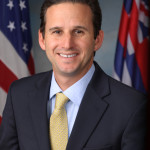 TESOL Press, the publishing arm of TESOL International Association, has released a new resource for developing professional teaching standards in countries where English is not the dominant language. The new TESOL Guidelines for Developing EFL Professional Teaching Standards provides detailed steps and discusses important issues for postsecondary institutions, government agencies, ministries of education, and other professionals working to improve the quality of English language teachers in English as a foreign language (EFL) contexts.
TESOL Press, the publishing arm of TESOL International Association, has released a new resource for developing professional teaching standards in countries where English is not the dominant language. The new TESOL Guidelines for Developing EFL Professional Teaching Standards provides detailed steps and discusses important issues for postsecondary institutions, government agencies, ministries of education, and other professionals working to improve the quality of English language teachers in English as a foreign language (EFL) contexts.
New Guidelines for EFL Teaching Standards
Haiti’s Government Backs Native Kreyòl Language
 Haiti has two official languages; French and the French-based Hatian Kreyòl. Until recently, education in Haiti was conducted with French as the primary language of instruction, despite the French language being spoken only by an elite 10% of the population. Quality education in Haiti was only available to very few because of this socio-economic language barrier, with many teachers themselves not fluent in French. Michael McGraff of the MIT-Haitian initiative worked with Haiti’s Ministry of National Education and Professional Training (MENFP) to establish the conventions around the use of Kreyòl and the promotion of Kreyòl in all sectors of Haitian society, saying, “Haitian children who are taught in Kreyòl achieve much higher learning gains than their counterparts who learn in French. Once children have strong foundations in their native language, they are better equipped to learn all academic subjects, including second languages such as French.”
Haiti has two official languages; French and the French-based Hatian Kreyòl. Until recently, education in Haiti was conducted with French as the primary language of instruction, despite the French language being spoken only by an elite 10% of the population. Quality education in Haiti was only available to very few because of this socio-economic language barrier, with many teachers themselves not fluent in French. Michael McGraff of the MIT-Haitian initiative worked with Haiti’s Ministry of National Education and Professional Training (MENFP) to establish the conventions around the use of Kreyòl and the promotion of Kreyòl in all sectors of Haitian society, saying, “Haitian children who are taught in Kreyòl achieve much higher learning gains than their counterparts who learn in French. Once children have strong foundations in their native language, they are better equipped to learn all academic subjects, including second languages such as French.”
Bipartisan Language Education Bill Introduced
 Reps. David Price (D-NC), Leonard Lance (R-NJ), Joe Crowley (D-NY), and Don Young (R-AK) have introduced the World Language Advancement Act (H.R. 3096), which would help state and local school districts implement innovative K-12 language programs.
Reps. David Price (D-NC), Leonard Lance (R-NJ), Joe Crowley (D-NY), and Don Young (R-AK) have introduced the World Language Advancement Act (H.R. 3096), which would help state and local school districts implement innovative K-12 language programs.
“In today’s global economy, K-12 foreign language and cultural knowledge have become necessary skills for government, private-sector, and non-profit employers,” said Congressman Price. “Federal incentives will help to ensure we are providing these competencies and equipping the next generation of leaders with the skills to communicate and collaborate across borders.”
McGraw-Hill Education Partners with Digital Language Learning Platform
 McGraw-Hill Education, one of the “big three” in education publishing, has recently purchased a $6.5 million minority equity stake in busuu, an online social network for language learning. The deal ensures that McGraw-Hill has exclusive global rights to distribute busuu to B2B customers, including schools and private language learning corporations. The two companies will also start a plan to incorporate McGraw-Hill Education’s adaptive learning technology to busuu products. Busuu is named after the critically endangered Busuu language of Cameroon and has over 55 million users with 12 languages to study. While working through language lessons, users from around the world interact through chat boxes or correct errors of students studying a user’s native language. Bussu also partnered with another of the education publishing giants, Pearson English, last year with the introduction of the GSET (Global Scale of English Test). The GSET allows online learners of English to measure their language proficiency in an accessible and affordable way. However, Pearson’s agreement was an exclusive six-month launch partnership and McGraw-Hill seems to have more ambitious goals for the future.
McGraw-Hill Education, one of the “big three” in education publishing, has recently purchased a $6.5 million minority equity stake in busuu, an online social network for language learning. The deal ensures that McGraw-Hill has exclusive global rights to distribute busuu to B2B customers, including schools and private language learning corporations. The two companies will also start a plan to incorporate McGraw-Hill Education’s adaptive learning technology to busuu products. Busuu is named after the critically endangered Busuu language of Cameroon and has over 55 million users with 12 languages to study. While working through language lessons, users from around the world interact through chat boxes or correct errors of students studying a user’s native language. Bussu also partnered with another of the education publishing giants, Pearson English, last year with the introduction of the GSET (Global Scale of English Test). The GSET allows online learners of English to measure their language proficiency in an accessible and affordable way. However, Pearson’s agreement was an exclusive six-month launch partnership and McGraw-Hill seems to have more ambitious goals for the future.
The Semantic Slant: Cuban Flag Flies in Washington
 Today in Washington, Cuba’s foreign minister, Bruno Rodríguez, raised the Cuban flag in front of the country’s newly reopened embassy. However, U.S. Secretary of State, John Kerry, won’t make his trip to officially celebrate the inauguration of the American Embassy in Cuba until August 14th. Still, as a historic symbol of full diplomatic restoration between countries, the Cuban flag flying in Washington was met with cheers of, “Viva Cuba!” The U.S. Embassy in Havana opened this morning as well, complete with lines extending past the building by 6 a.m. Anxious families awaiting interviews queued to meet with American Embassy personnel who, for the first time in decades, were answering questions and managing entrants.
Today in Washington, Cuba’s foreign minister, Bruno Rodríguez, raised the Cuban flag in front of the country’s newly reopened embassy. However, U.S. Secretary of State, John Kerry, won’t make his trip to officially celebrate the inauguration of the American Embassy in Cuba until August 14th. Still, as a historic symbol of full diplomatic restoration between countries, the Cuban flag flying in Washington was met with cheers of, “Viva Cuba!” The U.S. Embassy in Havana opened this morning as well, complete with lines extending past the building by 6 a.m. Anxious families awaiting interviews queued to meet with American Embassy personnel who, for the first time in decades, were answering questions and managing entrants.
Senate Bill Includes Native Language Amendments

U.S. Senator Brian Schatz (Hawaii) introduced two amendments aimed at promoting Native language education and improving school facilities, which were adopted by the Senate as part of the Every Child Achieves Act in an 81 to 17 vote last week. One of the amendments authorizes a study of native language immersion schools, which Schatz said would provide critical data to help determine best practices for educating students enrolled in native immersion programs. The other amendment is aimed at improving school facilities.
In advocating for the bill’s passage, Schatz said native languages have the power to strengthen the connection between students, their communities and their cultures. He said the bill would provide the tools needed to improve and expand Native Hawaiian programs in Hawaiʻi.
“The purpose of our federal education policy is to ensure that every child gets a high-quality education. But today, too many schools are in poor condition and lack the modern equipment necessary to keep kids focused and ready to learn,” said Senator Schatz in a press release. “My provision included in the Every Child Achieves Act will help us learn more about the condition of students’ school environments, so that we can make smarter, more effective decisions on school spending.”
Schatz worked closely with the National Coalition of Native American Language Schools and Programs (NCNALSP) to seek an amendment that will help change the way federal education policy is implemented in schools where education is delivered primarily through the medium of a Native American language. NCNALSP director Leslie Harper (Ojibwe) expressed excitement, saying, “We could not have asked for a better champion than Senator Schatz. He has a firm grasp of the issues. This amendment is part of the long process of revitalizing our Native American languages, which face extinction without appropriate educational policies.”
The amendment received strong support from large national organizations like the National Education Association, the National Congress of American Indians and the National Indian Education Association and also numerous tribal, state, and Native community entities as well as individuals from diverse backgrounds. Harper stated that the grassroots support and large organization response has been “both amazing and heartwarming.”
#ESEA, #nativelanguage
Pluto’s Linguistic History
 The name Pluto comes from the greek Ploutōn (Πλούτων), who was the ruler of the underworld in Greek and Roman religion and mythology. Plouton, sometimes conflated with Ploutos, the god of wealth who also dealt with the underworld in that mineral wealth was found under the ground, was a more positive ruler of the dead than his Greek counterpart, Hades. Pluto, the ex-planet, was named by 11-year old Venetia Burney in 1930. Burney proposed the name to her grandfather after they read a newspaper story about the discovery of a new planet. Burney’s grandfather, the retired head librarian at Oxford University’s Bodleian Library, passed the idea along to his astronomer friend who loved the name and telegraphed his colleagues who discovered the planet at the Arizona observatory. The scientists voted unanimously in favor of the name, and Pluto officially became the ninth planet in our solar system. Ventia Burney holds that she was interested in Greek and Roman myths at that age and did not name Pluto after the canine Disney character that debuted the same year. “It has now been satisfactorily proven that the dog was named after the planet, rather than the other way round. So, one is vindicated,” said Burney in a 2006 interview with the BBC.
The name Pluto comes from the greek Ploutōn (Πλούτων), who was the ruler of the underworld in Greek and Roman religion and mythology. Plouton, sometimes conflated with Ploutos, the god of wealth who also dealt with the underworld in that mineral wealth was found under the ground, was a more positive ruler of the dead than his Greek counterpart, Hades. Pluto, the ex-planet, was named by 11-year old Venetia Burney in 1930. Burney proposed the name to her grandfather after they read a newspaper story about the discovery of a new planet. Burney’s grandfather, the retired head librarian at Oxford University’s Bodleian Library, passed the idea along to his astronomer friend who loved the name and telegraphed his colleagues who discovered the planet at the Arizona observatory. The scientists voted unanimously in favor of the name, and Pluto officially became the ninth planet in our solar system. Ventia Burney holds that she was interested in Greek and Roman myths at that age and did not name Pluto after the canine Disney character that debuted the same year. “It has now been satisfactorily proven that the dog was named after the planet, rather than the other way round. So, one is vindicated,” said Burney in a 2006 interview with the BBC.
Foreign Language Requirements Lead to Multilingualism

Comparative study of U.S. and Europe shows correlation between language requirements and multilingualism
A Pew Research Center study on foreign language education in the U.S. compared to Europe points out that while the U.S. has no foreign language requirement mandated by the federal government, most European countries require that young pupils begin learning a second, and in many cases a third, language before high school. Such language requirements foster a culture of multilingualism, whereas on U.S. soil, monolingualism apparently prevails.
Senate’s ESEA Bill Fails English Learners
 The U.S. Senate has passed a reauthorization of the Elementary and Secondary Education Act (ESEA), replacing No Child Left Behind with a new iteration of federal education policy called the Every Child Achieves Act. The Senate had not approved of an overhaul of public education since No Child Left Behind was passed in 2001. With bipartisan support, the Every Child Achieves Act passed with an overwhelming majority of 81-17. Since its enactment in 1965, the ESEA has been a powerful tool in the struggle to ensure that all students, regardless of race, ethnicity, or income level, have the resources and support for academic success.
The U.S. Senate has passed a reauthorization of the Elementary and Secondary Education Act (ESEA), replacing No Child Left Behind with a new iteration of federal education policy called the Every Child Achieves Act. The Senate had not approved of an overhaul of public education since No Child Left Behind was passed in 2001. With bipartisan support, the Every Child Achieves Act passed with an overwhelming majority of 81-17. Since its enactment in 1965, the ESEA has been a powerful tool in the struggle to ensure that all students, regardless of race, ethnicity, or income level, have the resources and support for academic success.
Identifying Literacy and Learning Disabilities Early
 New research from Northwestern University has found a quick way to detect future literacy challenges in children who have not yet learned to read or write. The study, entitled Auditory Processing in Noise: A Preschool Biomarker for Literacy, found that preliterate children who were unable to successfully decipher speech in a noisy environment were more likely to have future trouble with reading and language development. “There are excellent interventions we can give to struggling readers during crucial preschool years, but the earlier the better,” said Nina Kraus, director of Northwestern’s Auditory Neuroscience Laboratory and professor of communication sciences, neurobiology, and physiology. “The challenge has been to identify which children are candidates for these interventions, and now we have discovered a way.”
New research from Northwestern University has found a quick way to detect future literacy challenges in children who have not yet learned to read or write. The study, entitled Auditory Processing in Noise: A Preschool Biomarker for Literacy, found that preliterate children who were unable to successfully decipher speech in a noisy environment were more likely to have future trouble with reading and language development. “There are excellent interventions we can give to struggling readers during crucial preschool years, but the earlier the better,” said Nina Kraus, director of Northwestern’s Auditory Neuroscience Laboratory and professor of communication sciences, neurobiology, and physiology. “The challenge has been to identify which children are candidates for these interventions, and now we have discovered a way.”


